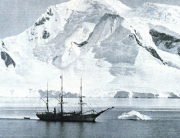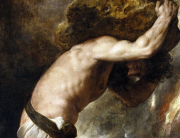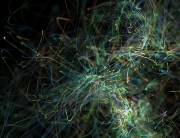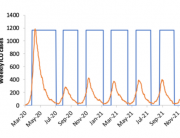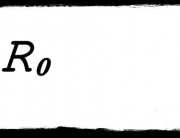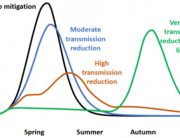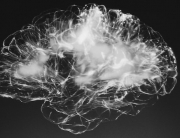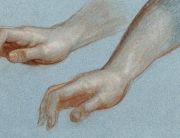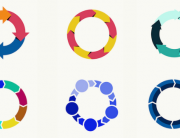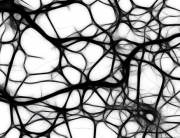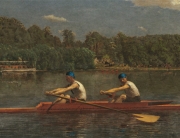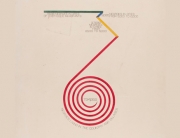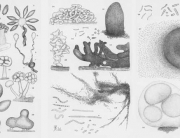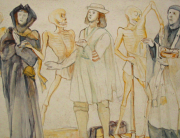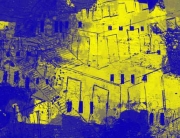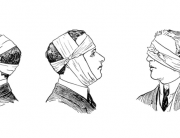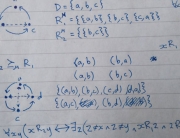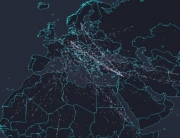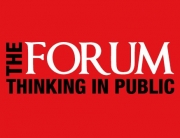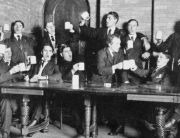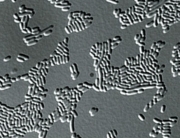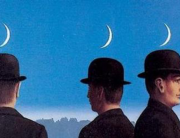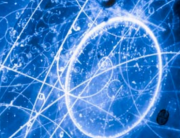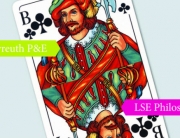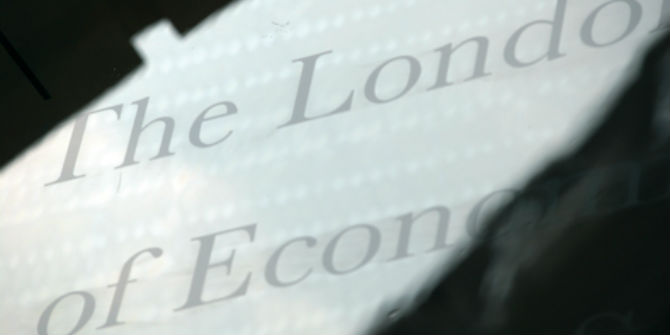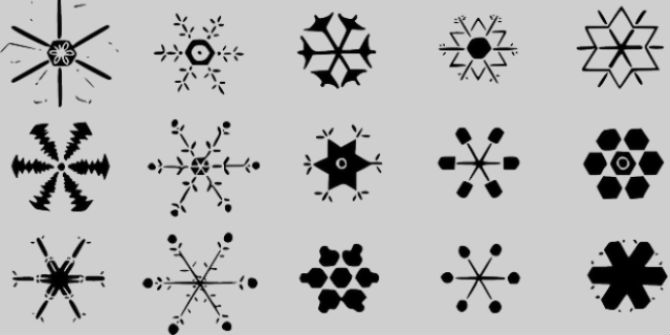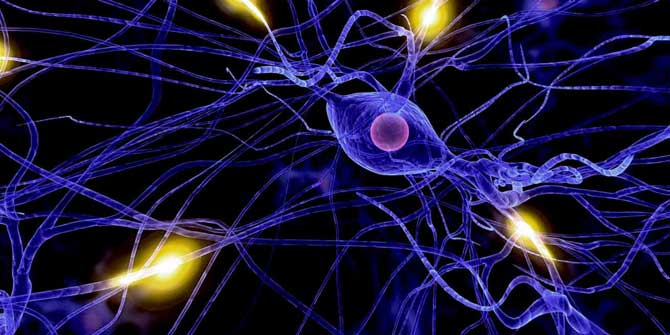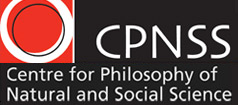How should philosophical writing employ the first-person plural, “we”? Simon Glendinning reflects on his recent work on the philosophy of Europe.
The Claim of Reason
Near the start of his book The Claim of Reason, the American philosopher Stanley Cavell voices a striking puzzle about the possibility of what might be called philosophical testimony – those moments when a philosopher recalls not merely what he or she is inclined to say but takes advantage of the “we” and speaks about “what we say”. In doing so, Cavell says, “I have nothing more to go on than my conviction, my sense that I make sense. It may prove to be the case that I am wrong, that my conviction isolates me, from all others, from myself”.
In the face of this threat to one’s sense of even making sense, Cavell himself then moves very quickly to affirming that “the wish or search for community” involved in his appeal to what we say is, at once, “the wish or search for reason”. Where what is in question is one’s even making sense, that transition to reason is perhaps understandable, but it is not an altogether neutral sense of one’s words making sense: “reason” is not a neutral word for what might gather rather than isolate me from all others and myself. Indeed, far from risking isolating him from all others, or himself, it immediately reinscribes his search within a quite specific heritage of understanding what the search for human community means, a heritage that is, in fact, specifically European, already tied to Europe’s history and identity as entangled in a philosophical heritage – a heritage in which the human is understood as the zōon logon echon, or (as that Greek definition was fatefully translated into Latin) as the animal rationale, coming down to us as the idea of Man as the uniquely rational animal. Even if it is not a speech only to “we Europeans”, “the wish or search for reason” is certainly an address made indifferently to all others that emanates from something very European, a culturally European place, even if that place is the enigmatic variation called America.
Cavell says that the appeal to what we say is “a claim to community”. When such a claim is made in a philosophical voice, it seeks “the basis upon which [community] can or has been established”; it cannot presuppose it. Hence Cavell cannot rule out in advance that his claim to community might just be testimony to his own isolation and erring, even from himself. This is strictly unavoidable. However, these risks multiply rapidly when a philosophical investigation takes Europe itself, its history and identity, as its theme. The philosophy of Europe must also make a claim to community, it also takes advantage of the “we”. When European identity is in question such a gesture simply cannot claim to embrace all others – and (supposedly universal) reason cannot be the ground of its appeal, even if the idea of reason grounds Europe’s own sense of its historical sense. This does not altogether change the situation in which Cavell describes himself as in, and in certain ways intensifies its risks.
We Europeans
The philosophy of Europe does not proceed through an empirical investigation of the formation of a European community in history: it is not a question of tracing an historical development that takes us from ancient origins to Europe today. Instead, it is the interpretive excavation of the major scansions or mutations in the history of a distinctively European self-understanding. And that self-understanding, in the contemporary formation of its present “today”, is, in each case, mine (if, that is, I am myself a European) or not mine (if, that is, I am not).
Taking advantage of the “we” in the philosophy of Europe can only presuppose that the self-understanding that is one’s own is indeed European, and hence is neither my own alone nor indifferently anyone’s. In my own case, where I am myself a European, I have to wager that when I make a claim to identify what, if anything, is distinctively European in my own understanding of the world and the significance of our lives, I am speaking to and from an understanding that might belong to anyone who, in virtue of that understanding’s being (also) theirs, are among those who, for that reason, can (also) be called European. For others, European or not, such an inquiry should articulate something for them, about “the basis upon which [a European community] can or has been established”, something perhaps familiar but not yet known.
It is hard to know how one might even begin such a speech, not least because Europe is itself a community that is not one: in all of its todays it has been marked by internal plurality. However, in whatever European places one speaks from, perhaps we can still register one signature feature that might mark any such (say) place-inflected register: when “Europe today” is a European speaker’s theme, when its present condition is the theme for their thinking, and even if they want to remain at the level of pure description in doing so, the ineluctable necessity of drawing on a memory of the very thing that they are thinking about draws that reference into relation to a Europe that also remains to come. In every sense, this is, I believe, part of the appeal of any such speech.
Europe Today
Something of this memory-drawing but yet-to-be-attained structure internal to Europe’s identity is in view in a wonderful text by the French poet and essayist Paul Valéry. Writing in 1926, and casting his eye over a Europe that seemed to him just then without aspirations of its own beyond being “governed by an American committee”, Valéry invited his reader to imagine being given “unlimited power”, and in possession of “the firm intention of doing your best”. Go on, he insists to that reader, imagine it. And now:
Well, what are you going to do? What are you going to do TODAY?
Sixty-four years later, but in a dialogue across the (to)days with Valéry, the French philosopher Jacques Derrida took up Valéry’s invitation, if not apparently the fantasy it was attached to, and speaking for himself did more than speak for himself:
Is there then a completely new “today” of Europe beyond all the exhausted programs of Eurocentrism and anti-Eurocentrism, these exhausting yet unforgettable programs? (We cannot and must not forget them since they do not forget us.) Am I taking advantage of the “we” when I begin saying that, in knowing them now by heart, and to the point of exhaustion – since these unforgettable programs are exhausting and exhausted – we today no longer want either Eurocentrism or anti-Eurocentrism?
Believing that he was himself speaking with something that runs deep in the memory of Europe, something haunting the here and now of his own “today”, something that is “as old as the history of Europe”, Derrida knew too that what he wants for Europe today remains as yet unattained, and hence is also something that is, he said, “newly new” for Europe: it belongs to a Europe that “seeks or promises itself today”, a Europe to come that already announces itself in the Europe of today, something “already present but not presently given” that could take the European self-understanding beyond its present (let’s say hegemonic) formation. That promise of “Europe today” is, I believe, internal to and not just a bolt-on extra to “Europe today” – in all its todays.
The Invitational “We”
Derrida had wondered if he was taking advantage of the “we”, unsure whether in speaking this way of what he wants for Europe today, he was overreaching himself, and was really only speaking for himself. But he believed that he was not so alone. How far that “we” might reach to others who are already there must have remained very uncertain to him. Perhaps, the “we today” that he invited his reader to see as their own “we today” too, would have, today, very limited reach. But, and returning now to Valery’s fantasy, Derrida’s honest faith and belief was that the invitational attraction of his appeal to the “we” held a power that might, in its invitational might, one day, unlimit itself. It might strike a mighty chord that others, once they heard it, can acknowledge for themselves as having already been their own desire for Europe today. Through the power of its striking the right note, the invitational use of “we” might find others through whom its reach might grow, and which, through that, a completely new “today” for Europe might make its way, and might even “one day”, as Derrida put it, “take over without any resistance at all” in a new hegemony.
I am more than happy to take up Derrida’s invitation to count myself in to those who might speak in this way of what “we today” want for Europe today. Indeed, I could wish nothing more for my own work in the philosophy of Europe than its having belonged to the history of that “new ‘today’ of Europe”. For that reason, if, in my own work, I attempt to narrate a European philosophical history – a history of the entanglement of European history with, especially, a philosophical and characteristically Eurocentric idea of world history – as internal to Europe’s history, if that attempt was to be presented everywhere free of the invitational form of the first person-plural, my work would not only present a stupid pretence at academic objectivity but, for me, would simply lose its voice: its appeal would be lost; what seeks or promises itself in Europe today would be lost, and hence Europe today would be lost too.
So, peopled and placed as I already am, and with nothing more to go on than the conviction that I’ve attained a nose for the thing, I think I can say this: when I myself speak in the name of “we, the Europeans” it may prove to be the case that I am wrong, that my conviction isolates me, from other Europeans, from myself, and indeed from what makes sense to any others, European or not. In the midst if not the middle of it all, I seek the basis upon which a distinctively European identity has been established, and hence how it might, once more, be re-established.
Simon Glendinning is Professor of European Philosophy and Head of Department in the European Institute at LSE.
Further reading
- Stanley Cavell’s book The Claim of Reason remains one of the most influential and original readings of the philosophical significance of the appeal to “ordinary language” in the work of the later Wittgenstein.
- Jacques Derrida’s book The Other Heading: Reflections on Today’s Europe is perhaps the first effort to identify a long and solid tradition of a distinctively philosophical discourse of world history as central to Europe’s understanding of its own modernity. Paul Valery’s essays on Europe in History and Politics, which Derrida cites often, are an exceptionally clear example of this great tradition of philosophical thought about Europe.
- My own two-volume book on the philosophy of Europe, Europe: A Philosophical History, explores the fate of this great tradition as it enters into crisis in our time.























